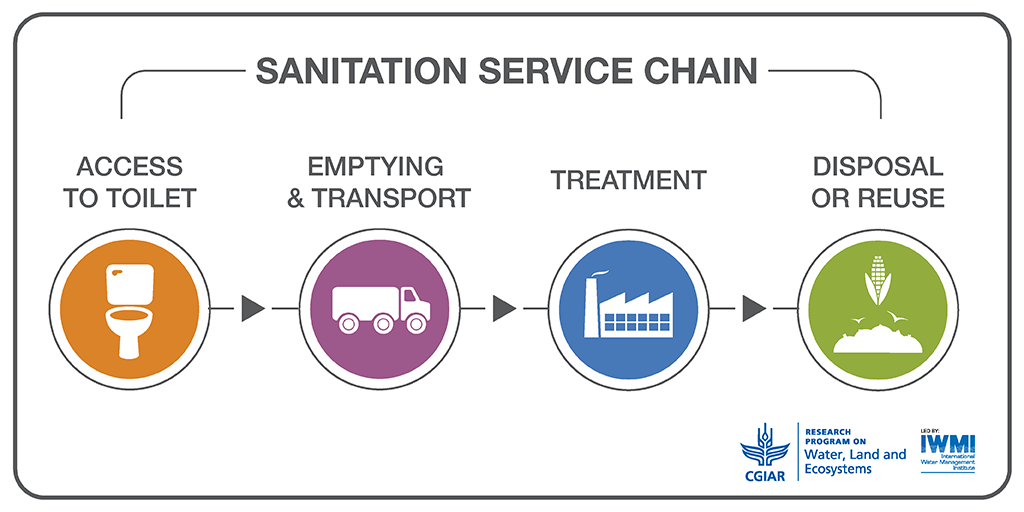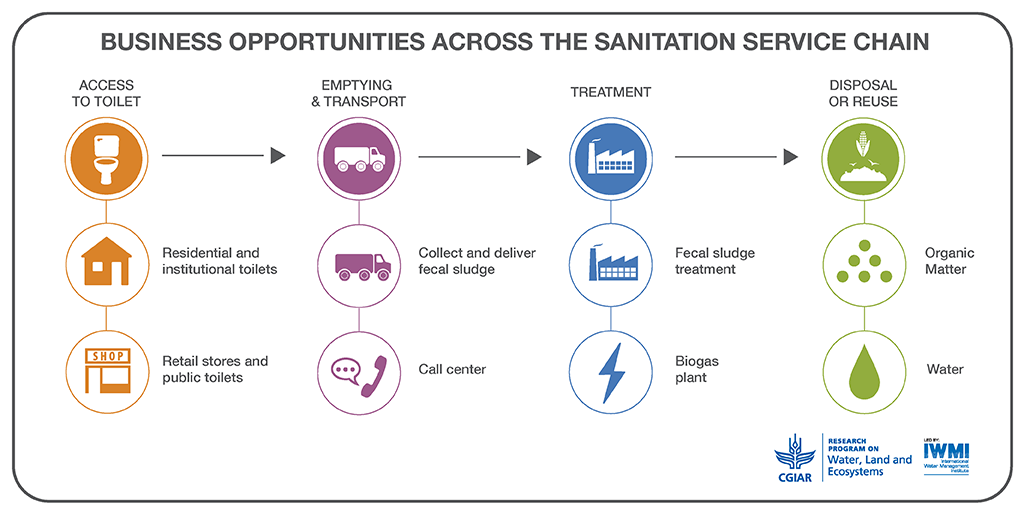Scaling up sustainable and profitable re-use of fecal sludge to sort out the mess
Only about a quarter of India’s rapidly growing urban population has access to a sewer system, despite major investments during recent years, leaving the great majority of its citizens reliant on pit latrines and septic tanks not to mention open defecation. Most of the waste (or fecal sludge) created by this “on-site sanitation” winds up in rivers and lakes, with dire consequences for human health and the environment.

Against this background, the country’s fourth largest city, Chennai, seems like the right venue for the 4th International Faecal Sludge Management (FSM4) Conference, taking place on 19-23 February. The city faces the same predicament as urban areas across the country together with thousands elsewhere. In search of solutions, the event’s organizers draw on experiences from around the world in safe handling of fecal sludge.
As a new World Bank Blog article suggests, these solutions must be technically sound and economically viable. The article references a recent CGIAR report that proposes a “business approach to fecal waste management,” providing entrepreneurs and investors with 18 distinct options (based on 44 case studies) to identify “the best institutional set-up for sustainable service delivery, including cost recovery, in a particular location and context.” Published by the CGIAR Research Program on Water, Land and Ecosystems (WLE), the report was prepared by scientists with the International Water Management Institute (IWMI), which leads WLE, and their partners.

Bringing together experts from across the Global South, IWMI helped organize a workshop alongside FSM4, designed to exchange experiences on ways to scale up the safe management of fecal sludge, with a sharp focus on the value of re-using this resource for diverse purposes. Informed by case studies from Ghana, Haiti, Kenya and Madagascar (involving the conversion of fecal sludge into electricity, solid fuel, animal feed, compost and biochar), the workshop covers topics such as the factors of success in devising viable models for low-income countries.
The workshop and related communications form part of a year-long campaign through which WLE and IWMI aim to foster greater recognition of the need to undertake major initiatives focused on transforming wastewater (including fecal sludge) into a valuable resource.

